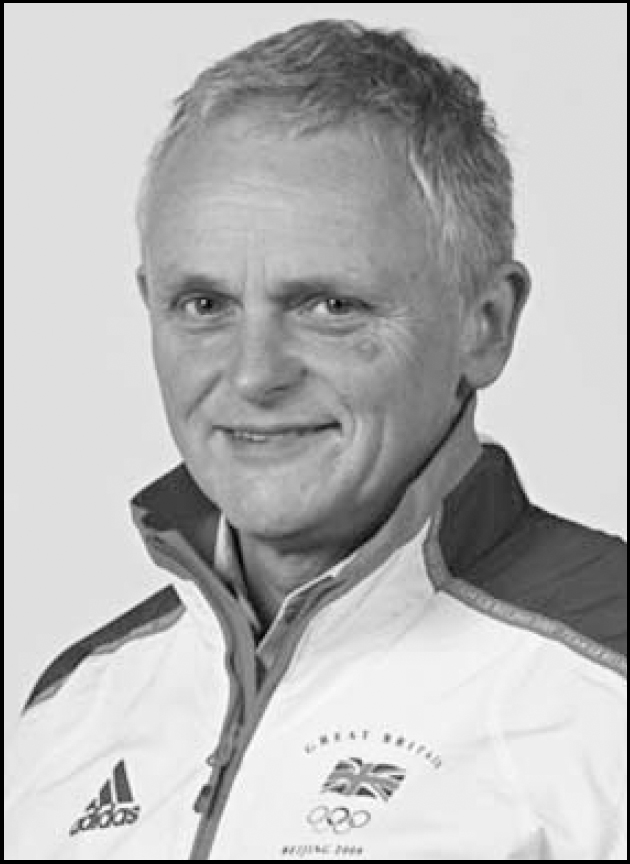Steve Peters is Resident as Psychiatrist and Senior Manager with the British Cycling Team and Undergraduate Dean and Honorary Clinical Senior Lecturer at Sheffield University Medical School. He trained in London. His special interest is the development of a psychiatric model applicable to elite and grass-root sport.
If you were not a psychiatrist, what would you do?
Full-time teacher.
What has been the greatest impact of your profession on you personally?
It made me reflect and act on my own beliefs and behaviours – I feel weare all ambassadors for the profession.
Do you feel stigmatised by your profession?
An odd question – I’ve always felt privileged and proud to be a psychiatrist.
What are your interests outside of work?
Dogs, keeping fit, friends.
Who was your most influential trainer, and why?
Mr Chris Wood (surgeon) in my first house job because he was constructive and supportive in helping me to establish myself as a doctor. This allowed me to accept that I did not always have to have all the answers and that doctors are here to learn. This influenced the way I have dealt with all students and doctors since.
What job gave you the most useful training experience?
I believe I gained from each training post and beyond. I think it is more of a progressive jigsaw and some small pieces within a job were critical to my own professional or personal development and expertise.
Which publication has influenced you most?
Most research helps shape practice and progresses knowledge. Light-hearted work is influential also in provoking thought and reflection, for example, the work of Schultz, a cartoonist.
How has the political environment influenced your work?
I think it is a case of modifying my working practice to adjust to the constantly changing opinions and, sad to say, the power of the ego in a few. I try to live with the world that I am in and the people who dwell there.

What part of your work gives you the most satisfaction?
Seeing people becoming happy based on self-fulfillment, whether it is patients or colleagues. In my current work of elite sport there are clear rewards in the shape of medals but it is greatly rewarding that so many athletes have commented on how the work we have undertaken has changed them for the better as a person.
What do you least enjoy?
Trying to help those who I find I can't help, for lack of skill on my part, or because they cannot get better, or are unable to move ground.
What is the most promising opportunity facing the profession?
Ironically, the imposition of personal and professional development. Most of us did not welcome being forced to do what we, particularly as psychiatrists, owe ourselves to do. Yet this opportunity to actually dedicate time to improving our own self can only be good for all around us and our working practice.
What is the greatest threat?
Ourselves. If we as psychiatrists develop and use the interpersonal skills that we so often expect in others, we can be proactive and skilful in moulding change. I accept that we cannot always win and it is often a battle but when it comes to human battles, who better to take the lead with an initiative than a psychiatrist?
What single change would substantially improve quality of care?
Seeing teams working as teams.
What is the most important advice you could offer to a new trainee?
Respect your knowledge and boundaries of expertise and don't impose stressful ideals upon yourself or others. Keep a sense of humour and always talk to a wise listening ear and reflect on your own words. Smile.
What are the main ethical problems that psychiatrists will face in the future?
Probably being put into a position of crystal-ball gazing for personality disorders, where risk and other ethical dilemmas are involved, and thereby being drawn outside of the medical role. On the reverse side of the coin, having developed the psychobiological ‘evidence’ that strongly predicts behaviour, to be placed in a position to release and act on this information.
Do you think psychiatry is brainless or mindless?
Neither. I would like to think that psychiatrists approach their work from various angles and using various models in order to get the best out of their patients and colleagues, as well as self.
What is the role of the psychiatrist in rebuilding healthcare systems?
I suppose I am being optimistic in believing that all psychiatrists possess the people skills and patient knowledge to be aptly placed to advise and support others who will be influenced by this. I know this view would not be universally accepted.
What single area of psychiatric research should be given priority?
So much work needs to be done and we all know this. Thankfully, we have some amazing research psychiatrists constantly pushing the boundaries. I am not one of these, so it would be unfair to single out one area as no doubt there is great merit in all areas.
How would you like to be remembered?
I wouldn't, but I’d like to think that the work that I had done had contributed in some way to making the world a bit better.



eLetters
No eLetters have been published for this article.